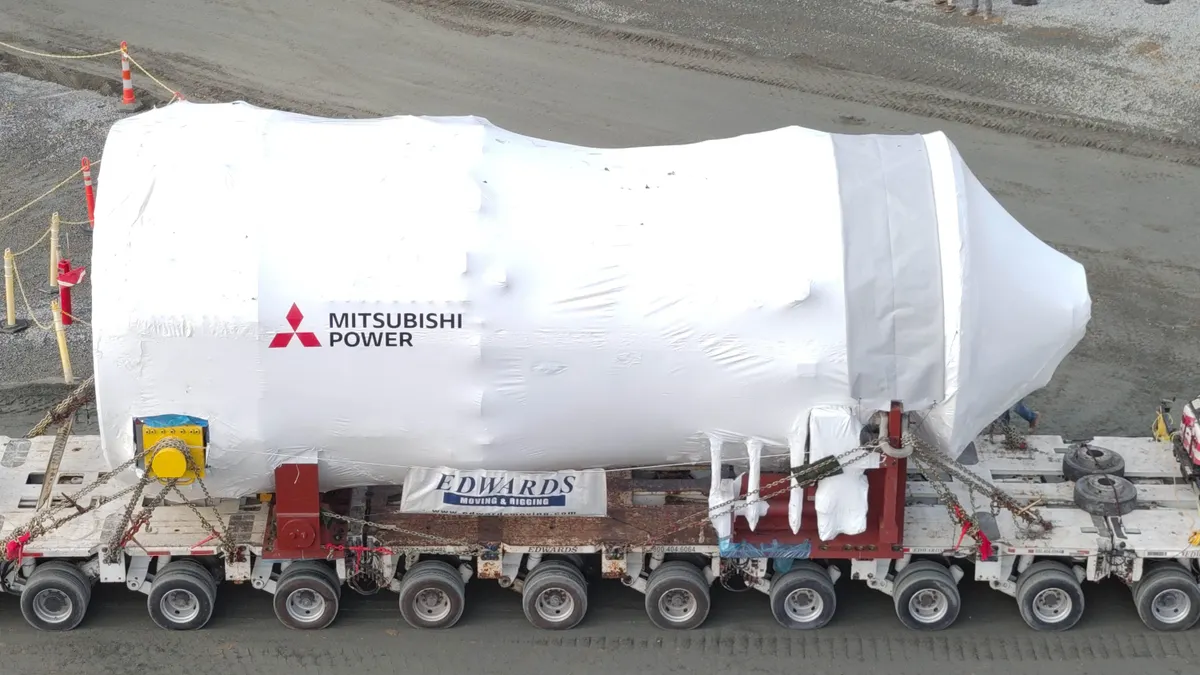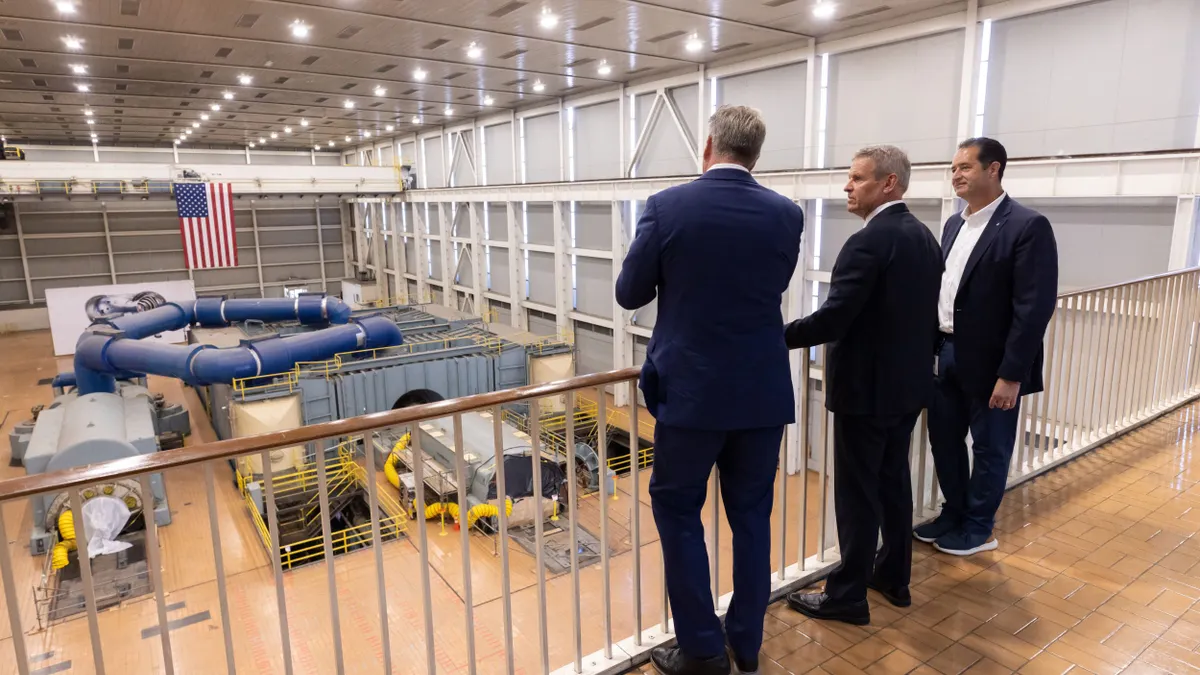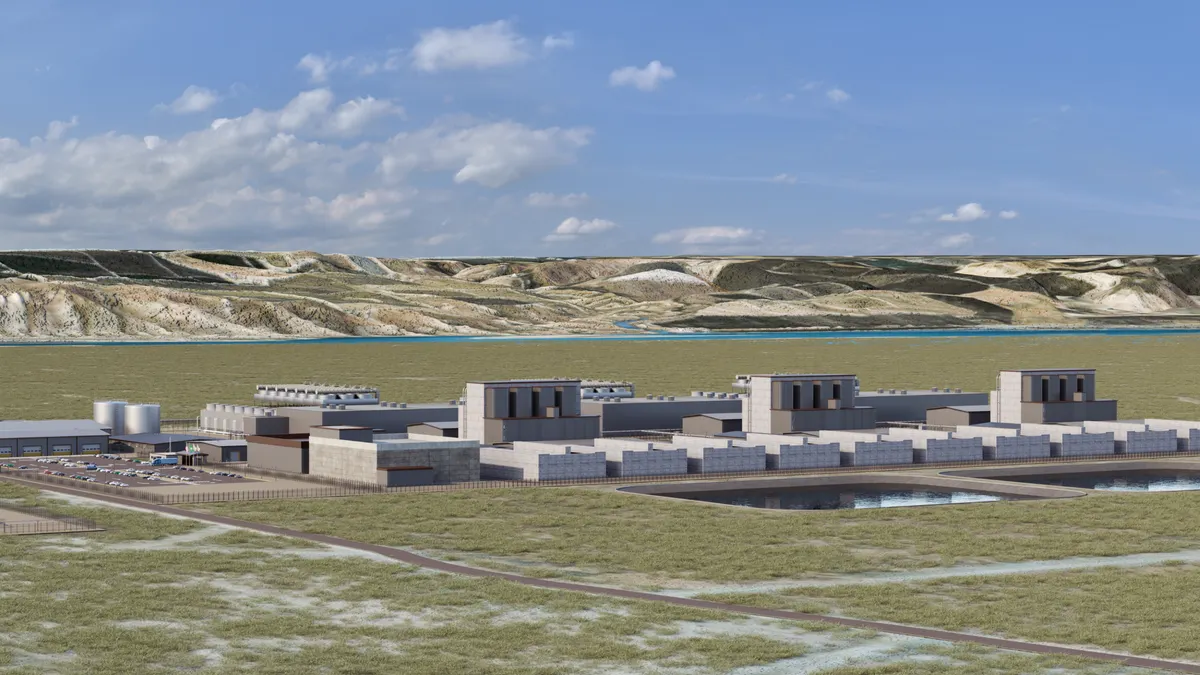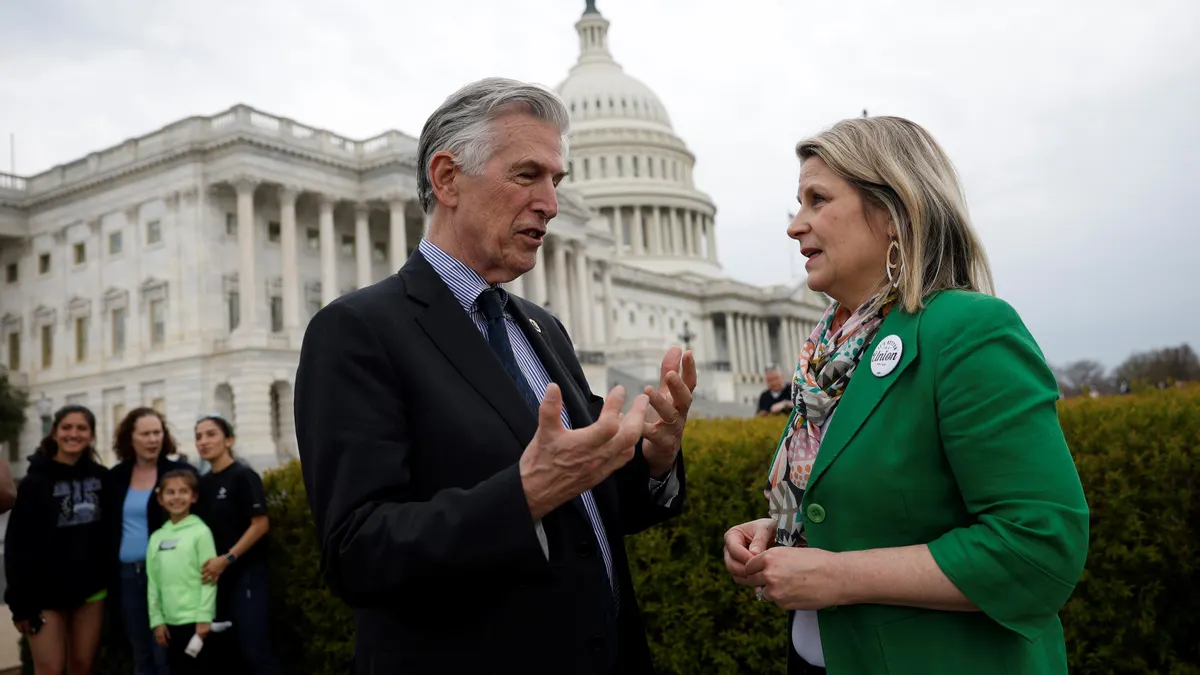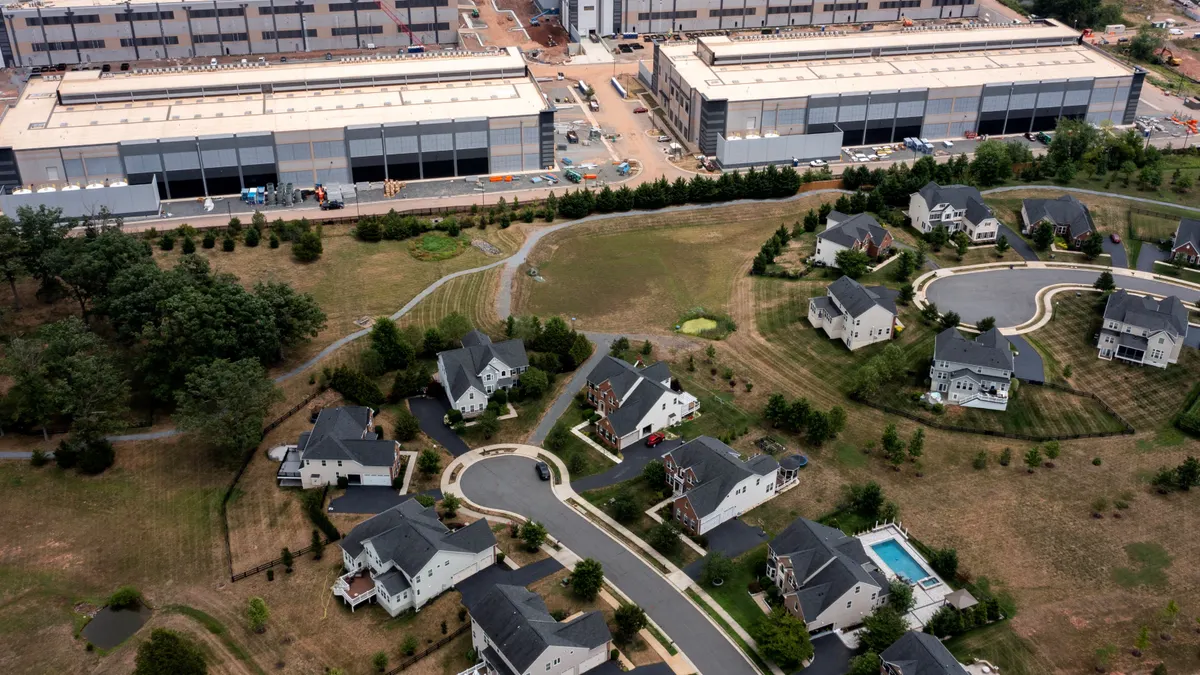Some renewable energy developers and PJM Interconnection market participants contend the grid operator’s proposal to provide a fast track interconnection process for shovel-ready generating projects will spark lawsuits and should be dropped, according to letters to PJM and the Federal Energy Regulstory Commission.
“The proposal is a blatant attempt to perpetrate undue discrimination and preference for the benefit of a select few load-serving entities … in PJM that want to monopolize the opportunity to serve surging data center load and use PJM’s tariff to do so,” unnamed renewable developers said in a Nov. 27 letter to PJM released Tuesday.
The debate centers on PJM’s proposed Reliability Resource Initiative, which was floated in early October and aims to address potential grid reliability problems. Under the RRI proposal’s latest version, which PJM plans to file this month for FERC approval, PJM would select 50 proposed generating projects to jump into an interconnection review process based on various criteria set to begin in January.
The proposal will lead to “the most strenuous” protests at FERC and, if approved by the agency, a court battle, according to the renewable energy developers.
“It is much better for PJM to proceed with stakeholder support — look at the large volume of diverse stakeholder support that backed PJM’s recent queue reform proposal at FERC — than to weather the onslaught and risks that PJM will face if it moves forward with the proposal,” the developers said.
PJM hasn’t specifically defined the need that the proposal aims to address, according to the developers. “PJM has claimed increased data center load is a driving factor, but again has provided zero data to confirm the need,” they said.
The proposal is discriminatory and would benefit load-serving entities that want to retain their power plants, revive mothballed plants or build new ones, according to the developers. It discriminates against projects that have been waiting for years to be considered in PJM’s upcoming Transition Cycle 2 interconnection review, they said.
Other parties are also raising concerns about the RRI proposal.
The proposal violates the filed rate doctrine and FERC’s prohibition against retroactive ratemaking, former FERC Chairman Norman Bay said in a Nov. 26 letter to the agency that was released Monday. It is also contrary to open access principles, said Bay, a partner at Willkie Farr & Gallagher who represents “market participants.”
Further, there is no immediate resource adequacy threat in PJM, Bay said, pointing to PJM’s 29% installed reserve margin last summer compared to its 17.7% reserve target.
“PJM has underestimated the capacity that could come online and the capacity’s [effective load carrying capability] value, disregarded the benefit that surplus interconnection service and capacity interconnection rights … transfer from retiring units could provide, and overestimated the capacity that would retire,” Bay said. “Strong capacity market signals, plus a new president who has vowed to roll back various environmental regulations, also undermine PJM’s arguments and assumptions.”
AES told PJM’s board that the RRI proposal is incomplete and may not solve the challenges it aims to address.
“PJM has not demonstrated a causal link between proposed measures and grid reliability improvements,” AES said in a letter released Monday. “Consequently, the initiative lacks a rigorous assessment of its effectiveness, rendering the proposal speculative and potentially counterproductive.”
Like others, AES said PJM’s stakeholder process for the proposal was hasty and inadequate. “By prematurely advancing to a proposed solution without properly articulating the underlying problem or engaging in meaningful stakeholder dialogue, PJM undermined the integrity of its governance mechanisms and disrupted the collaborative decision-making framework essential to effective policy development,” the Arlington, Virginia-based utility and generation company said.
The proposal should be changed to give states a bigger role in selecting projects that would advance in the special interconnection review, according to Pennsylvania Gov. Josh Shaprio, D. When PJM sorts through proposed projects, states should be able to submit scoring for “project viability” based on how likely they are to be sited and permitted by state agencies, Shapiro said in a Nov. 20 letter released Monday.
Invenergy, the American Clean Power Association and other trade groups, along with the Environmental Law & Policy Center have also raised concerns about PJM’s proposal, according to recent letters to the grid operator.
However, PJM has been documenting its grid reliability concerns for nearly three years, including in its Resource Retirements, Replacements and Risks report, according to Jeffrey Shields, a spokesman for the grid operator.
“The challenge of having enough supply to meet increased demand due to data centers and other factors is a national problem; it is not in dispute,” Shields said in an email.
Also, the RRI would be open to resources of all fuel types and technologies, according to Shields. “We do not know, for instance, whether natural gas units will seek to partake,” he said. “We do know that nuclear resources (both new and uprates) have declared their interest, and they provide zero emission megawatts.”







